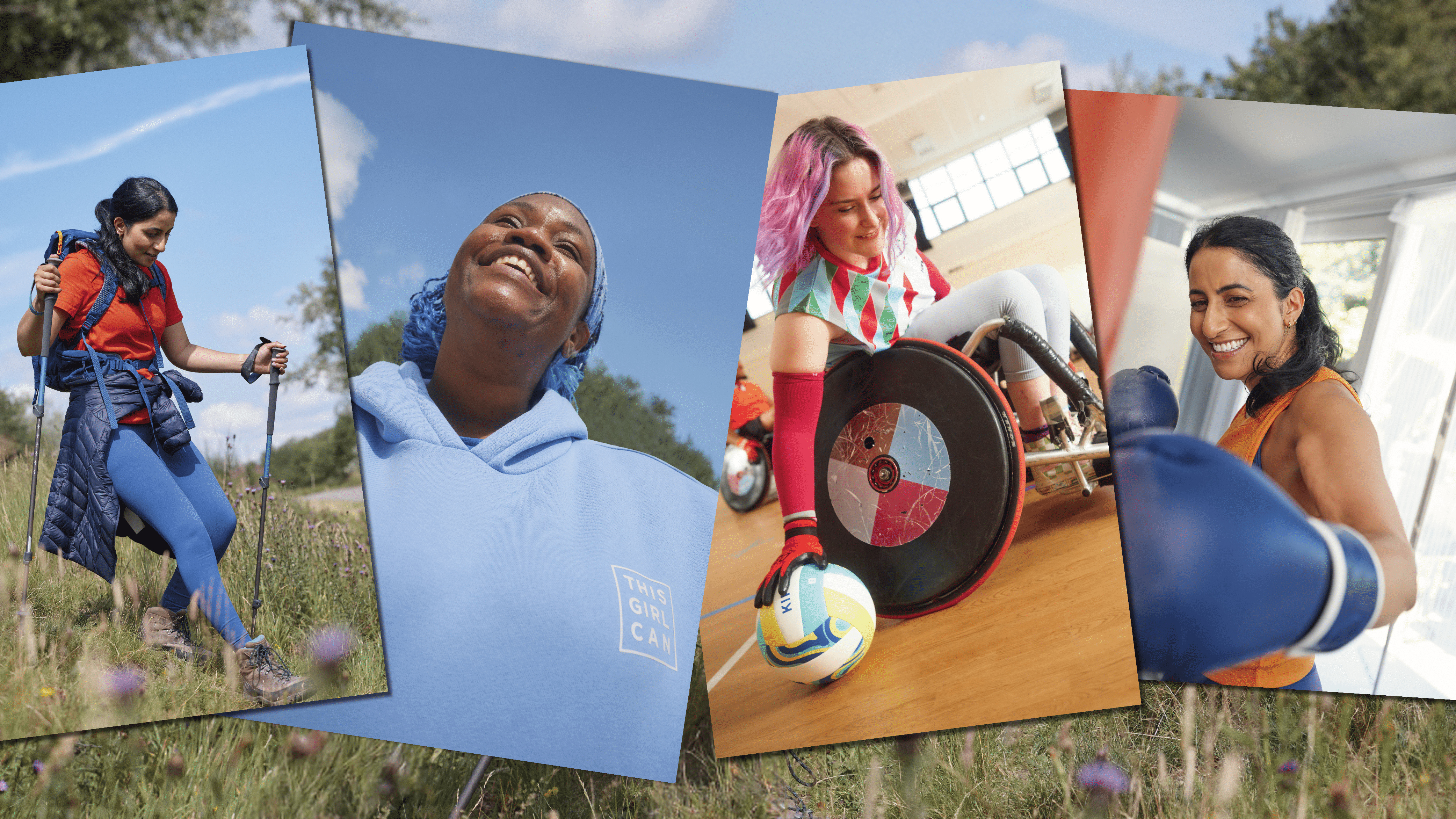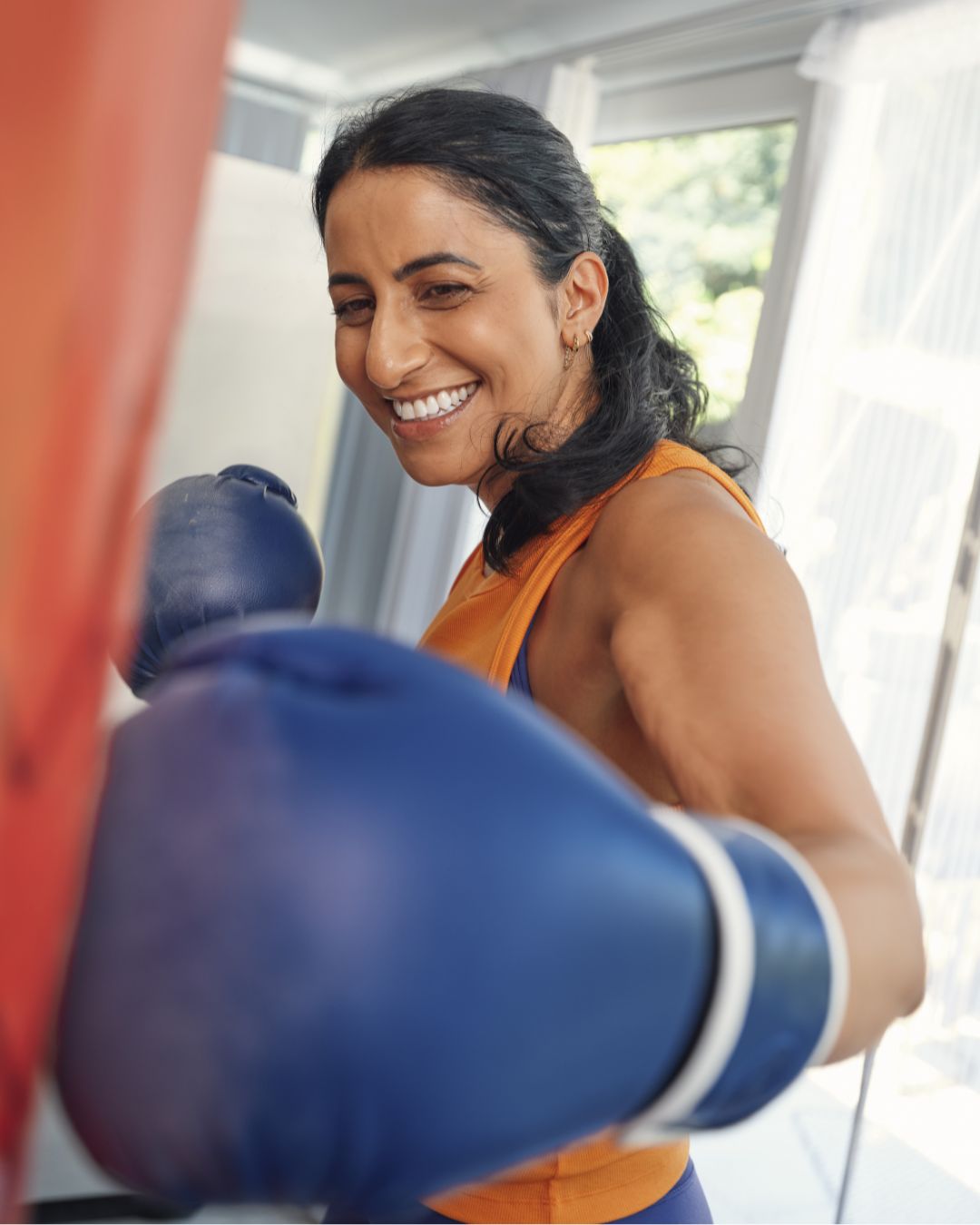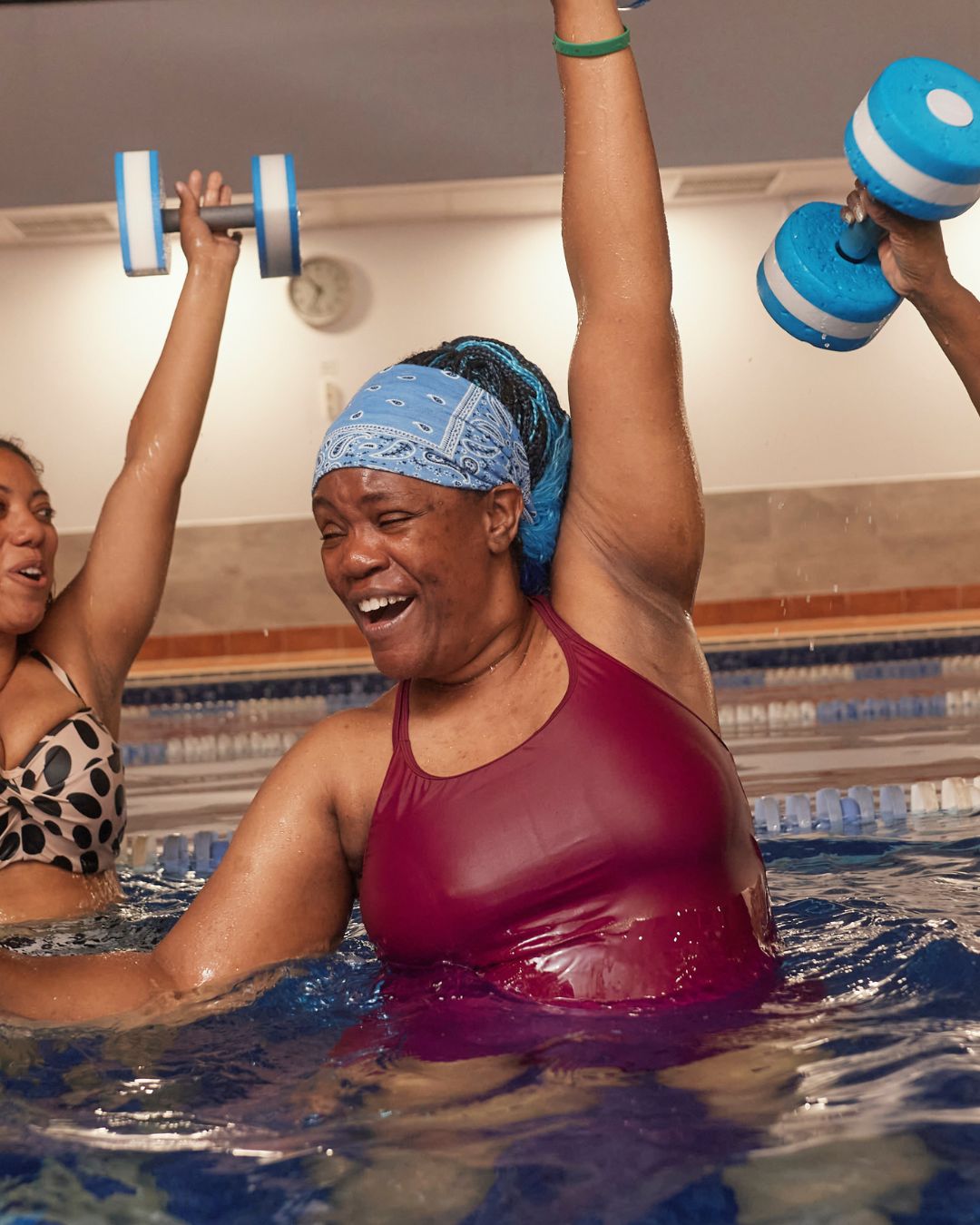
This Girl Can's latest campaign, We Like The Way You Move, launches today.
The first TV ad from the organisation in five years, it celebrates real women who choose to move on their own terms - from a 60-year-old walking footballer to a headscarf-wearing mum of three.
While the ad itself is many things - inspiring, uplifting, motivating, and ground-breaking - data from the National Lottery-funded initiative isn't so positive. Their statistics shine a light on the reality of finding time to move as a woman in the UK, not to mention the many barriers to entry that continue to hold us back.
Statistics show that only 40% of people pictured in online sport and activity images are women. That's under half. And, out of the more than 8,500 women shown, only 57 were Black and 64 South Asian, while disabled, older and pregnant women were almost entirely absent.
Speaking exclusively to MC UK, Viveen Taylor, Head of Equality, Diversity and Inclusion at Sport England, paints a fuller picture. "Our new AI-powered study shows that women are being erased from the picture of sport and physical activity - and it sends a powerful message."
"If you never see women like you represented in physical activity spaces, it’s harder to believe you belong there. And when women feel excluded – because of race, culture, disability, pregnancy, age, motherhood or financial barriers – they’re less likely to move at all. That means too many women are missing out on the physical, mental and social benefits of being active and health inequalities across the country deepen."
You know how the age-old saying goes - if you can't see it, you can't be it, and representation is pivotal to encourage all women to reap the many benefits exercise can bring.
Celebrity news, beauty, fashion advice, and fascinating features, delivered straight to your inbox!
Other data shared exclusively with MC UK also reveals that the lack of representation is having a worrying impact, with only 14% of the women surveyed spending at least the recommended amount of 150 minutes per week on getting active weekly.
Women’s wellbeing continues to be underfunded, unsupported, and underchampioned, furthering the inequality health gap in the UK.
That's where the This Girl Can campaign comes in - "to change the picture, to show that every woman belongs in movement, and to celebrate the women finding ways to move that work for them – no matter what that looks like," Taylor goes on.
While normalising imperfection, celebrating women's bodies, and the number of women embracing daily movement has no doubt improved since 2015 when This Girl Can first launched - "ten years ago, the conversation around women and sport was almost entirely about aesthetics and having a certain body type" - representation and visibility of underrepresented groups is still critically low. "Until every woman can see herself reflected – and feel she belongs – we haven’t finished the job," Taylor goes on.
Wondering why this all matters? Simply, because having the time to exercise, eat well, and sleep for the NHS-advised eight hours a night is pivotal for our general wellbeing. All have been scientifically proven to boost the quality of life, but also help us to live longer, healthier and happier lives.
Below, we share two inspiring stories from the campaign in the hope it'll inspire you to move at home. Ami lived with an autoimmune condition for her entire life, meaning that she was largely bed-bound, while Jemma struggled with the weight of caring responsibilities, leaving little room for herself. Both found their way back through movement – from gentle steps to aqua aerobics – discovering that activity can be a form of healing rather than a test of fitness.
As This Girl Can's latest advertisement launches - we chat to two everyday women who found their zest for life again through movement
Ami
"I suffer daily with my autoimmune disease, but exercise has been a vital part of my health journey. Along with the right medication and a positive mindset, it helped me get out of my wheelchair and regain my independence."
"At my lowest point, I was really underweight with no muscle. I started by simply lifting myself out of my wheelchair and walking to the fireplace at home. Step by step, I began to rebuild my strength, muscle, and confidence."
"Now, I make movement part of my everyday life. I go to the gym for Pilates, yoga, or weight training, and I walk around six to seven miles a day – sometimes with my dog, sometimes on my own."
"Physically, exercise has helped me go from wheelchair-bound and bed-bound to active, strong and physically capable. However, I do still struggle with flare-ups - as I write this, I have been unable to go to the gym for two weeks as my feet are arthritic and inflamed. My flare-ups are a barrier to me being consistent with exercise, but I appreciate what exercise does for me, so I always make sure I get back to it, even if it feels hard at first."
"I have had over 30 surgeries and have metal and wires in my back. Exercise is so important to me - to keep me active, keep my muscles strong, and also keep me mentally stable. After spending twelve years in a wheelchair, I'm so eager to be outdoors whenever I can. I love walking, being in nature, and climbing mountains."
"I used to feel so intimidated by sport and never enjoyed it as a child - I just assumed I wasn’t the sporty type. It was only once I started walking, then hiking, and my eyes opened to the outdoors, that I discovered there's a sport for everyone."
"For anyone looking to get into movement but feeling intimidated, my advice is to start small. Go for a walk around the block, dance along to a YouTube tutorial, and open your mind up to trying new activities. Just start moving - even if you think they’re not your thing, you might be surprised."

Jemma
"I wasn't looking after my health, and during my pregnancy with my son, I was diagnosed with gestational diabetes. After giving birth, I found keeping up with him exhausting - that's when I knew I had to do something."
"I was inspired to start moving to make sure that I can be there for my son and daughter – not just as a mother, but to set an example to them. I knew I couldn't just tell them about being fit and healthy when I myself wasn't. I felt like the best way for them to learn was to lead by example."
"Representation of women that look like me didn’t exist – not just in terms of skin colour, but also hair type. I wanted my mum and my daughter to be able to see people who looked like us getting active."
"That said, I’ve always had a love/hate relationship with exercise. Some days I push myself to go, and other days the thought of all the prep, especially around my hair, makes me want to skip it. I have ADHD and an autistic son, so finding the time and energy has been a real challenge. But once I get past those blocks and actually get in the pool, I love it."
"Once I’m moving, I feel like I can conquer the world. Exercise helps me manage my health now and gives me energy for my family and my day-to-day life."
"For those who feel like sport isn't for them, my advice is to find something you love that's completely for you. It doesn't have to be sport-related. Whether that’s dancing at home, swimming or a childhood activity you used to love doing, find a club or somewhere that does this. It could also just be taking a stroll through your local park or a walk to your local shop."
"Societally, we seem to feel that if you're not going to the gym or taking part in some form of sporting activity, then you're not keeping fit. But this isn't true. If you love doing housework, like deep cleaning, then you’re keeping fit by doing this. Do something that is unapologetically you and block out what society dictates."

What needs to change in order for more women to feel encouraged into sport in the UK?
It's a good question. While Taylor reflects that progress has undoubtedly been made in the ten years the charity has been running, there is still more work to do.
"From offering women-only sessions to staff who understand cultural needs to creating more low-impact classes to supporting with childcare on site, we’d like to see real changes made on the ground so that women have genuine choice in how they get moving. Movement should feel like a safe, joyful and inclusive space, not another arena where women feel judged or excluded," she shares.
If you still feel intimidated by sport or like workout classes or movement aren't for you, Taylor has some advice for you. "Put yourself front and centre of what you need, and start where you are," she advises. " Just ten minutes of walking, stretching in your living room, dancing in your kitchen – it all counts."
"You don’t need fancy kit or a fitness goal to begin," she goes on. "And remember, activity doesn’t belong to a particular body type, age or culture - it belongs to you, in whatever form works for your life."
Bottom line? Movement is powerful, but it should never feel like another pressure. "This campaign is about rewriting the narrative so that all women, from all walks of life can find ways of moving that bring them joy, healing and connection."

Ally is Marie Claire UK's Senior Health and Sustainability Editor, a well-regarded wellness expert, ten-time marathoner, and Boston Qualifying runner.
Utilising her impressive skillset and exceptional quality of writing, she pens investigative, review and first-person pieces that consistently demonstrate flair and originality.
As well as writing, Ally manages a team of freelancers, oversees all commissioning and strategy for her pillars, and spearheads the brand's annual Women in Sport covers, interviewing and shooting the likes of Mary Earps, Millie Bright, and Ilona Maher. Shortlisted for three BSMEs and winning one in 2022, Ally lives and breathes her verticals: her eye for a story and connections within the wellness sphere are unrivalled. Follow Ally on Instagram for more.
